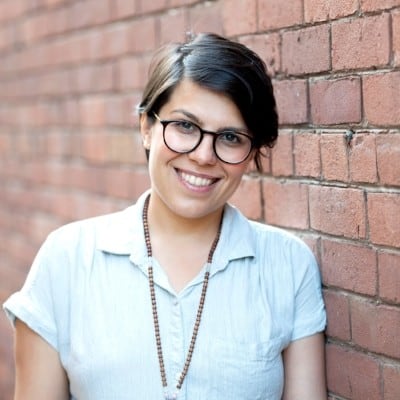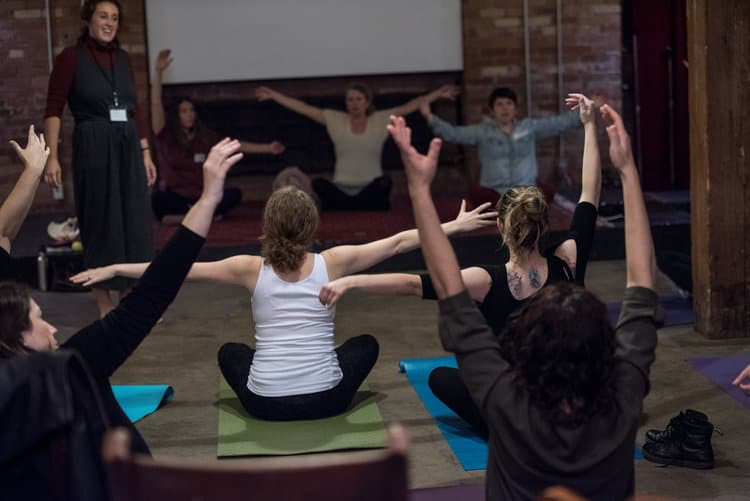Whether you’re looking forward to (or dreading) the labour process, it’s always a good bet to INFORM yourself. At the 4 Trimesters: Pregnancy, Birth and Postpartum Conference, you’ll have a great opportunity to do just that.
Corina Tudor is a doula, yoga teacher, childbirth educator, and former archaeologist. Her work is grounded in both research and intuition, offering a holistic approach to fertility, pregnancy, birth and beyond. She’ll be offering a workshop at the conference called “Coping Strategies for Labour.” We caught up with her this week.

STDC: How does your former work in archaeology inform what you currently do as a doula and childbirth educator?
CT: I think the most obvious way is by practicing from an evidence-based standpoint. To an extent, archaeology is a science, and my work was focused on geophysical applications in archaeology, so I still have a bit of scientist brain. Archaeology is also all about constructing narratives—for long-dead people, settlements, civilizations, etc.
In my current work, I am very interested in how people construct their personal narratives during their perinatal journey and how I can support them so that they feel empowered and content.
What do you wish more people knew about the labour and delivery process?
That you don’t have to sacrifice the birthing person’s mental and emotional well-being for the sake of the baby’s health. I often hear that the only thing that matters is a healthy baby, and I disagree. You can have a healthy baby AND healthy parents—both emotionally and physically. I’m not talking about ignoring medical advice. I’m talking about people feeling acknowledged and empowered to be an agent in their own health care and perinatal narrative. Even if there is only one course of action, feeling part of the conversation can positively change people’s experience of labour and delivery (as opposed to having things just happen to them).
How can we better prepare ourselves for labour and delivery?
Is it too self-serving to say get a doula? But seriously, if it’s not financially prohibitive, get a doula! Aside from that, go to a childbirth education class that presents obstetric information AND coping methods. Practice those coping methods and know yourself— know what works for you and what doesn’t. Be honest and compassionate with yourself. During labour, you will be doing the best you can.
If you could give one practical tip to someone who is heading into labour, what would it be?
Move! During contractions, and even between contractions, keep moving. Circle your hips, squat, lunge, slow dance and sway (and rest on your side with a pillow between your knees if you’re tired).
What was the most inspiring/memorable moment for you personally as a doula/childbirth educator?
This past childbirth education class I taught was amazing. I’m still riding that high. I teach Birthing from Within, which is a style of teaching that may not work for everyone, as I take the role of a mentor and a facilitator as opposed to a more traditional teacher.
The people in my class connected and mentored each other, and slowly but surely they built a wonderful and supportive kinship. At the end of the class, upon checking out, they all thanked each other for the community they shared and expressed the desire to stay in touch. This human connection overjoyed me!
What do you hope participants take away from your segments at 4 Trimesters?
Whether it’s preferring one comfort measure over the other, or having to make specific decisions about support or birth preferences, I hope folks take away the ability to troubleshoot and personalize their care.



 Follow Us On Instagram
Follow Us On Instagram
